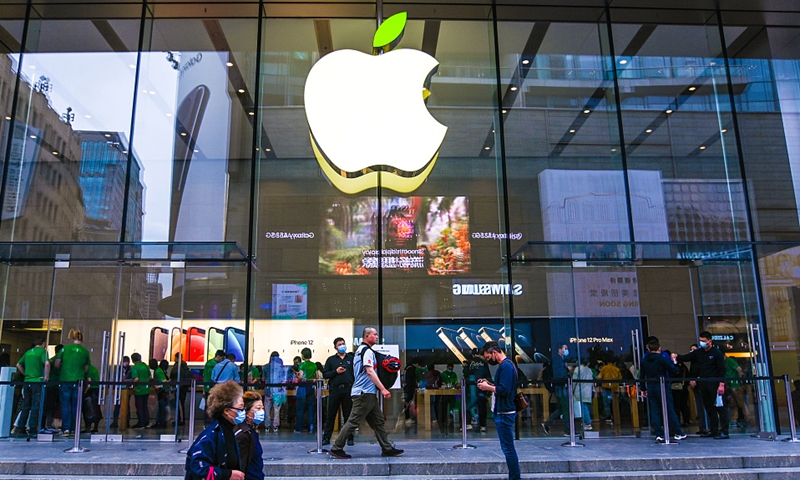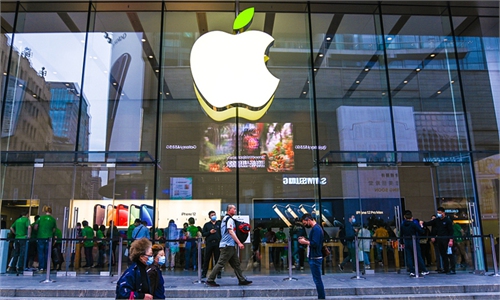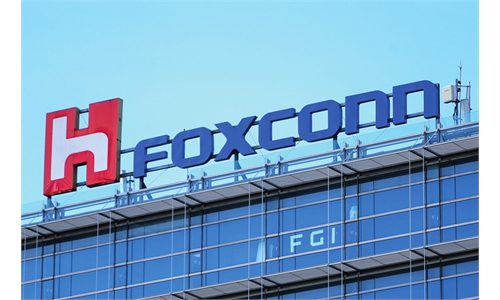
The photo taken on April 21, 2021 shows an Apple store in Shanghai. Photo: CFP
Buyers of Apple's new iPhone 13 series are facing longer-than-expected delivery times as a result of lingering global chip shortages, which are being intensified by labor shortages and logistics hurdles in some Southeast Asian countries.
Industry insiders said that the chip shortage will last at least until the first quarter of 2022.
While the long shipment period remains a major headache for Apple's supply chain, the situation will likely persist until the first quarter of 2022, given inadequate production capacity in the global spectrum, industry insiders said.
Since its launch in September, the iPhone13 series has had Apple's longest waiting period from orders to deliveries, ranging from two to four weeks, due to tight supply chains and high demand, Caijing Magazine reported.
Several buyers told the Global Times on Wednesday that they had waited for a month or more to get Apple's new products. One buyer surnamed Li said that he had been waiting for five weeks for his iPhone 13 pro.
The long shipment delays are mainly driven by tight supply chains, hampered by chip shortages. The situation has persisted, especially amid intensified labor shortages in some Southeast Asian countries as well as some parts of China, insiders said.
One recent hint could be the start of a new round of recruitment at some plants of Apple's major original equipment manufacturer Foxconn in the region.
A manager with Foxconn's plant in South China's Shenzhen told the Global Times on Wednesday that the signing bonus for new staffers has risen to 5,860 yuan ($917) from about 5,000 yuan in the middle of October.
Some Foxconn plants in the mainland are starting new rounds of recruitment with 20,000 staffers needed, particularly for Apple's product assembly, the manager said.
Many industries around the world are short of chips and viable logistics options. For Apple, it's mainly the former that's a problem, Ming-Chi Kuo, a renowned Apple analyst at TF International Securities, told the Global Times in a recent written interview. "In addition to chips, Apple's camera module (Sharp) currently has a supply gap," Kuo said.
To reduce waiting periods and speed up production of the latest iPhone series, Apple has reportedly moved a large number of parts originally planned for the iPad and older iPhones into the iPhone13 series, resulting in a 50 percent reduction in iPad production capacity, media reports said.
The supply gap is difficult to estimate because it is a dynamic process, but it's likely that Apple's shipments will fall short of the company's target for 2021 by about 10 percent, Kuo said.
The chip shortages are mainly related to major suppliers such as Broadcom and Texas Instruments, according to the expert. Even though the chip shortages are easing, the impact on Apple's shipments is likely to last until the first quarter of 2022, Kuo said.



